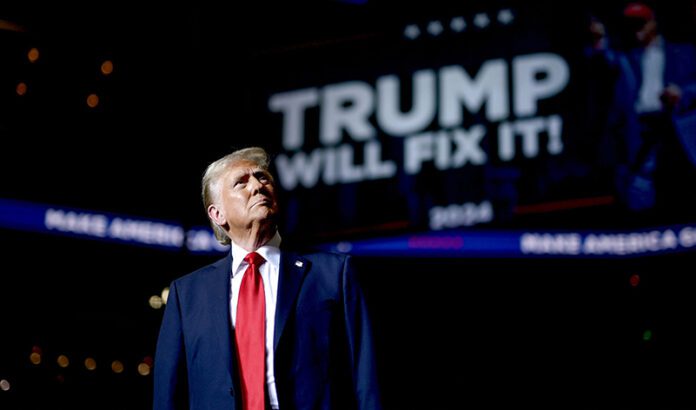The leader of Germany’s largest steel company believes US tariffs will put “further pressure” on European markets already hampered by overcapacity and high energy costs.
Dennis Grimm from Thyssenkrupp Steel Europe told the German radio station WDR on Wednesday that the duties announced earlier this week by US President Donald Trump would have only a “minor impact” on his company directly.
However, the tariffs are likely to have a damaging effect on European markets due to increasing overcapacity, Grimm argued.
The US imported 23-million tonnes of steel from Europe in 2024.
“These quantities will certainly be largely pushed into the European Economic Area, thereby putting further pressure on our markets here,” said Grimm.
The executive highlighted that German conglomerate Thyssenkrupp’s steel division is facing a difficult situation in Germany, where energy prices are currently two to three times higher than in China and the US.
The Düsseldorf-based company has an annual production capacity of 11.5-million tonnes of steel but has only sold about 9-million for several years due to pressure from imports from low-wage countries.
Grimm called on the next German government to act quickly to reduce energy costs and introduce “reliable border protection” to protect against dumping.
“Above all, we need predictability,” said Grimm.
Fight against corruption
Thyssenkrupp Steel is “very clearly committed to Germany as a business location” and wants to continue to be the country’s largest steelmaker in the future, Grimm said.
The subsidiary currently employs some 27 000 workers, but 11 000 positions are to be cut or outsourced under a major restructuring programme.
Meanwhile, the fight against corruption in Germany took a backwards step in 2024, with the country sliding to 15th place worldwide in the latest ranking by campaign group Transparency International.
The organisation’s Corruption Perceptions Index, released on Tuesday, saw Germany on 75 points — down three since 2023 — and well behind the global leader Denmark on 90.
Alexander Herzog from Transparency Germany said the country is lagging behind other countries in northern Europe.
“Insufficient transparency and uncontrolled large donations — some of which come from abroad — jeopardise fair political competition,” she said.
Herzog said inadequate regulations leave the country open to strategic attempts by foreign states to exert influence through corruption.
Law on transparency
The organisation is calling for the introduction of a law on transparency in the next German parliament.
“A modern transparency law not only helps to prevent corruption, it also promotes citizen participation and increases the efficiency of administrative processes,” said Herzog.
However, there is “cause for optimism” in Germany, according to Tuesday’s report, after a law was passed by the current government.
“Germany’s new lobby register will require fossil fuel companies to disclose climate lobbying, staving off corporate influence — even though requiring a full lobbying footprint would further boost its effectiveness,” the report added.
The influence of the fossil fuel lobby remains particularly strong in Germany, said Transparency Germany’s Margarete Bause, “as can be seen, for example, in the implementation of the Nord Stream pipelines or in the commitment to the combustion engine for the German automotive industry.
“Where billions flow, there is also a high level of corruption,” she added. –dpa



